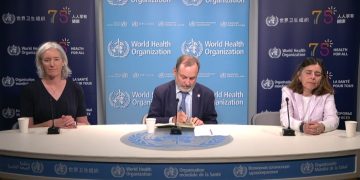
Meanwhile using fear’ story about overpopulation and underpopulation as well as reasons on climate change is somewhat dangerous. The population is about people. Evidence abundantly shows that when people are availed of opportunities, when they are healthy, educated, and able to exercise their rights, individuals, and societies flourish.
Therefore, the blame on fertility rates for climate crisis is somewhat inaccurate. In a recent survey, it is found that the most held views were that global population is too large and fertility rates too high. According to that kind of logic, global warming is supposedly driven by proliferation of human beings on a planet of finite resources. Yet this fallacy holds the wrong on people to account. Just 10 percent of the world’s population is responsible for half of all greenhouse gas emissions. The countries with the highest fertility rates contribute least to global warming and suffer most from its impacts. A woman in the Sahel with seven children has likely had no impact on climate change, but she and her community will experience some of the fastest rising temperatures in the world. Focusing only on fertility rates also distracts from real solutions, like reducing consumption in wealthy countries. UNFPA’ report shows half a million births every year take place among girls aged 10 to 14 years old – girls who are so young might not realize that they can get pregnant. They are too young to understand the consent of sex They just must be married off or being abused, or both.
UNFPA’s report says the ranking of the world’s most populous countries will change significantly over the next 25 years. For example, as we speak, India’s population is overtaking China’s. Therefore, it is mandatory for Everyone to know what all of this means, and without a clear answer, there is a danger that human rights, and particularly reproductive rights, will be undermined. What is really happening now in some places, calls for limiting family size, bans on contraception in public hospitals, women being urged to step away from their careers to become mothers. What worst is women turn merely as baby factories.
At the opening of the Commission on Population and Development, Amina J. Mohammed – Deputy Secretary-General confirms “Education is a crucial long-term investment for sustainable development”. She quoted UNICEF report saying “there is nearly 67 million children missed out on routine vaccinations during the COVID-19 and pandemic; and what breaks her heart, the fact saying 263 million kids and youth are out of school worldwide. This is why education is mandatory and very important to be managed accurately. It is the backbone and route to success of all SDG.
António Guterres – Secretary General, as of published in the release of UN foundation last Friday, wrote a letter to his great-great-granddaughter: “As I write you in 2023, humanity is still losing the fight of our lives: the battle against climate upheaval that threatens our planet. While the planet warms and demands for climate action and justice grow, the race to ensure young people’s access to good health and education is also on.”
We live on this same planet which is the only available. Therefore, whether to like it or not, the reality calls us to participate in turning all SDG goals to be achieved at its review in 2030. Together we can make an impact.
Tersedia di Google play










































